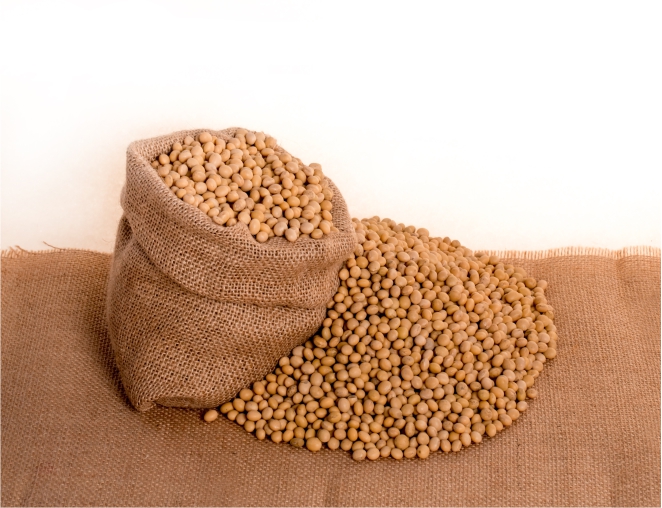Soybeans Nutrition Facts
Soybeans (Glycine max) are a type of legume, native to eastern Asia.
They are an important component of Asian diets and have been consumed for thousands of years. Today, they are mainly grown in Asia, and South and North America.
In Asia, soybeans are often eaten whole, but in Western countries heavily processed soy products are much more common.
Various soy products are available, including soy flour, soy protein, tofu, soy milk, soy sauce, and soybean oil.
Soybeans contain antioxidants and phytonutrients that have been linked with various health benefits, while concerns have also been raised about adverse effects.

Aside from water, soybeans are mainly composed of protein, but they also contain good amounts of carbs and fat.
The table below contains information on all the basic nutrients in soybeans.
Nutrition Facts: Soybeans, cooked, boiled - 100 grams
| Amount | |
| Calories | 173 |
| Water | 63 % |
| Protein | 16.6 g |
| Carbs | 9.9 g |
| Sugar | 3 g |
| Fiber | 6 g |
| Fat | 9 g |
| Saturated | 1.3 g |
| Monounsaturated | 1.98 g |
| Polyunsaturated | 5.06 g |
| Omega-3 | 0.6 g |
| Omega-6 | 4.47 g |
| Trans fat | ~ |
Soybeans are among the best sources of plant-based protein.
The protein content of soybeans ranges from 36 to 56% of the dry weight.
One cup of boiled soybeans (172 g) contains around 29 grams of protein.
The nutritional value of soy protein is good, although the quality is not quite as high as animal protein.
The main types of protein in soybeans are glycinin and conglycinin, which make up approximately 80% of the total protein content. These proteins may trigger allergic reactions in some people.
Soybeans also contain bioactive proteins, such as lectin and lunasin, which may have anti-cancer properties.
BOTTOM LINE:Soybeans are a very rich source of plant-based protein, making them ideal for vegan diets.◎An evidence-based nutrition article from our experts at Authority Nutrition.





